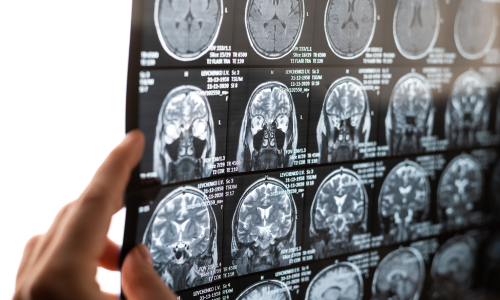 Suffering from a brain injury can profoundly impact your life, often requiring extensive treatment and long-term care. If your injury resulted from someone else’s negligence or direct actions, you might be entitled to compensation for medical expenses, ongoing care, and pain and suffering.
Suffering from a brain injury can profoundly impact your life, often requiring extensive treatment and long-term care. If your injury resulted from someone else’s negligence or direct actions, you might be entitled to compensation for medical expenses, ongoing care, and pain and suffering.
Our team of knowledgeable brain injury legal team serving Hilton Head, South Carolina, is committed to fighting for your rights and ensuring you get the justice you are due. We have the knowledge to manage all court processes since we recognize the complexity of these matters, so you may concentrate on getting better.
Contact us right now for a free, thorough assessment of your case. With our dedicated legal support and compassionate approach, we’re here to guide you through this difficult time.
How Can Our Traumatic Brain Injury Attorney Serving Hilton Head Help With Your Case?
A traumatic brain injury legal team serving Hilton Head can be an important ally in your recovery journey after suffering a traumatic brain injury (TBI). Your legal team can assist you with:
- Analyzing Negligence: Identifying which parties acted negligently and are responsible for your injury.
- Developing a Strategy: Creating a comprehensive plan to secure compensation for your damages.
- Assessing Case Strength: Evaluating the strength of your case and gathering supporting evidence.
- Preparing Damages Demand: Drafting a thorough and detailed demand for damages.
- Communicating with Parties: Handling all communications with the defendant and insurance providers involved in your case.
- Consulting on Settlements: Advising on whether to accept settlement offers.
- Preparing for Trial: Preparing all necessary court documents and representing you in trial if needed.
We focus on each client individually to develop a tailored case strategy that meets their goals. If you or a loved one has suffered a TBI due to another party’s negligence in Hilton Head, call the CEO Lawyer Personal Injury Law Firm today or contact us through our website for a free consultation.
Hire Our Traumatic Brain Injury Lawyer Serving Hilton Head to Assist You With Legal Concerns
If you’ve sustained a brain injury, managing the ensuing legal and medical challenges can feel overwhelming. The CEO Lawyer Personal Injury Law Firm helps victims of traumatic brain injuries pursue the compensation and care they need.
Our team is dedicated to your well-being, providing superior medical treatment and pursuing full compensation for your losses.
With knowledge in personal injury law, our legal team has handled brain injury cases. We provide clear guidance on how the legal process typically handles cases like yours, helping you build a strong claim for financial recovery.
Our dedicated legal team serving Hilton Head, SC, is committed to safeguarding your rights, gathering critical evidence, handling negotiations, and representing you in court, all while you focus on your recovery.
Let us take the burden off your shoulders and advocate fiercely on your behalf.
What Is Considered a Traumatic Brain Injury?
A traumatic brain injury (TBI) is a life-altering condition that can dramatically change one’s future. By definition, it is a severe brain injury that can be physically, emotionally, and cognitively debilitating, with effects that can last a lifetime.
While various medical organizations have their own definitions of traumatic brain injuries, the Centers for Disease Control and Prevention (CDC) offers a clear and straightforward explanation. According to the CDC, a traumatic brain injury is “an injury that affects how the brain works.”
A concussion is considered a mild form of TBI. However, moderate or severe TBIs can result in long-term interference with brain function that may never fully heal.
TBIs are often compared to chronic illnesses because individuals frequently live with the repercussions for the rest of their lives. When the brain is impaired, speaking, concentrating, walking, or performing even the simplest tasks can become challenging or impossible.
Types of Traumatic Brain Injury
If you have suffered a serious brain injury, it can be hard to understand how your accident and your injury will affect your life. Understanding the type of brain injury can help you see what your future will hold and what type of compensation might be necessary to provide for your future.
Primary and Secondary Brain Injury
Brain injury can be classified as either primary or secondary brain injury. Primary brain injury occurs at the moment of your car accident, slip and fall, or other traumatic impact.
It often leads to secondary brain injury, which develops over time as the effects of the primary injury cause additional harm. These secondary injuries can be more severe, resulting from complications like inflammation, bleeding, or the separation of brain structures, leading to brain cell death.
Understanding both types is crucial for grasping the full scope of a brain injury’s impact on your life.
Concussion
A concussion is a type of minor traumatic brain injury often caused by blows to the head or forceful acceleration, such as during a car accident. Despite seeming minor, concussions can lead to secondary brain injuries.
The effects may take months or years to heal, and during this time, the brain remains vulnerable to further damage from additional concussions. Recognizing the seriousness of concussions is important for seeking appropriate treatment and preventing long-term consequences.
Coup-contrecoup
Coup-contrecoup injuries occur when the brain moves inside the skull due to impact. The brain strikes the skull on one side (coup) and then rebounds to hit the opposite side (contrecoup).
This type of injury can result in localized primary and diffuse secondary injuries, making it particularly dangerous. Understanding the mechanics of coup-contrecoup injuries can help in assessing the full extent of brain damage and planning for comprehensive medical care and rehabilitation.
Contusion
A contusion is a bruise on the brain caused by broken blood vessels and swelling of brain tissue. This lesion can put pressure on other brain areas, leading to serious complications.
Contusions can result from both closed-head and open-head injuries. Identifying a contusion early is vital for managing the swelling and preventing further brain damage.
Treatment often involves monitoring and possibly surgical intervention to alleviate pressure and prevent long-term effects.
Open-Head Injury (Skull Fracture)
Open-head injuries occur when the skull is cracked, often due to significant force. A depressed skull fracture happens when broken skull pieces press on brain tissue, while a penetrating skull fracture occurs when an object pierces the skull and brain.
These injuries can cause contusions or hematomas, leading to severe brain damage. Prompt medical attention is crucial for managing open-head injuries, as they pose a high risk of infection and further complications.
Hematoma
A hematoma involves heavy bleeding around the brain, increasing pressure, and potentially causing secondary injuries. Hematomas can be life-threatening and require immediate medical intervention to reduce pressure and prevent further damage.
Understanding the symptoms and risks associated with hematomas is essential for timely treatment. Surgery may be necessary to remove the accumulated blood and alleviate pressure on the brain, improving outcomes and reducing long-term impacts.
Anoxia and Hypoxia
Anoxia and hypoxia refer to the cessation and reduction of oxygen supply to the brain. These conditions can result from secondary brain injury effects, such as brain swelling that closes blood vessels, or from events like suffocation or drowning.
Both anoxia and hypoxia can cause severe and lasting brain damage. Recognizing and treating these conditions promptly is crucial to restore oxygen flow and reduce brain injury, supporting the most favorable recovery.
What Are the Symptoms of a Traumatic Brain Injury?
Traumatic brain injuries (TBIs) affect individuals in various ways. However, some common early signs of moderate to severe TBIs include:
- Agitation and/or Combativeness: Increased irritability and aggressive behavior.
- Balance and Coordination Problems: Difficulty in maintaining balance and coordination.
- Cognitive Problems: Issues with comprehension, speech, or concentration.
- Confusion and Disorientation: Experiencing confusion and a lack of orientation.
- Depression and Anxiety: Emotional disturbances such as depression and anxiety.
- Fatigue: Persistent tiredness and low energy levels.
- Headaches: Frequent and severe headaches.
- Mood Swings: Rapid and unpredictable changes in mood.
- Nausea: Feeling nauseous or experiencing vomiting.
- Sensitivity to Light or Sound: Increased sensitivity to light and sound.
- Sleeping Problems: Difficulties in falling asleep, staying asleep, or sleeping too much.
What Is the Time Limit for Filing a Lawsuit?
Every state sets specific time limits for filing personal injury lawsuits. In South Carolina, the Code of Laws §15-3-530 allows injured parties three years to file a civil lawsuit seeking compensatory damages.
This statutory period typically begins on the date of the accident. A lawsuit may be barred from seeking compensation if it is filed after the three-year deadline.
Our traumatic brain injury legal team serving Hilton Head can help a victim understand the applicable deadline for their case, including any rare exceptions that might apply, and ensure all filing requirements are met on time.
Who is Responsible for Your Hilton Head TBI Injury?
If another party acted negligently or intentionally, causing your accident or injury, they could be held responsible for your damages. The only exception is if your injury occurred at the workplace within the scope of your duties as an employee, in which case, no proof of negligence is required.
Here are common scenarios where a third party may be responsible for a victim’s TBI:
- Motor Vehicle Accidents: If another driver acted negligently, causing a car accident, they could be held responsible for your injuries. Evidence of negligence includes any action outside the normal level of responsibility required of a driver, such as speeding, driving under the influence, or failing to comply with traffic signals.
- Premises Liability: Property owners must ensure the safety of visitors. The level of responsibility depends on whether the visitor is a business or social guest. While property owners are not obligated to protect trespassers, they have limited obligations to child trespassers. Slip-and-fall accidents often occur due to hazardous conditions on someone else’s property, potentially making the property owner responsible.
- Medical Malpractice: Medical practitioners are expected to provide a standard level of care comparable to their peers. If they fail to meet this standard of care, doctors or other medical professionals who make mistakes that cause or worsen a TBI can be held liable.
- Product Liability: The manufacturer could be held responsible if a defective or dangerous product caused or worsened your injury. For example, the manufacturer could be liable for the resulting injuries if an airbag fails to deploy in a car accident.
- Workplace Injury: If an injury occurs while performing your duties, you may not need to prove negligence. Workplace injuries are handled through the South Carolina Workers’ Compensation Commission, which provides medical costs and cash benefits for temporary or permanent disabilities. Independent contractors, however, must pursue recovery based on the at-fault party’s negligence.
Consult Our Traumatic Brain Injury Attorney Serving Hilton Head Today!
A traumatic brain injury (TBI) can have lifelong consequences, causing a range of complications. The financial burden of a TBI can be overwhelming for both the injured individual and their family.
Fortunately, a personal injury legal team serving Hilton Head can help you secure the compensation you need for the future.
Our traumatic brain injury legal team serving Hilton Head can gather evidence, identify the responsible party, and hold them accountable in court. With the knowledge of our traumatic brain injury legal team serving Hilton Head, you may be able to recover compensation that reflects the full extent of your injuries.
Contact the CEO Lawyer Personal Injury Law Firm today to explore your options and learn what may be possible for your case.
Give a call to our traumatic brain injury legal team serving Hilton Head at (864) 664-3865 or schedule your complimentary consultation. We’ll help you explore your legal opportunities.
FAQ:
Q. What are the most common causes of brain injury?
According to the Centers for Disease Control and Prevention (CDC), the leading cause of brain injuries in the United States is auto accidents. Other common causes include slip-and-fall accidents, physical violence, sports-related incidents, and boating accidents. If you or a loved one has sustained a brain injury, our legal team serving Hilton Head can help you seek the compensation needed for recovery.
Q. How is brain injury treated?
Brain injury treatment typically occurs in three stages:
- Acute – This involves surgical intervention and medications to prevent further damage.
- Subacute – This phase includes medical treatments, hospitalization, and rehabilitation to start the recovery process.
- Chronic – Long-term treatments such as physical, occupational, speech, and recreational therapy, medications, and adaptive technology help individuals lead fulfilling lives.
Even with these treatments, full recovery from a brain injury may not be possible.
Q. What are some potential complications of brain injuries?
Brain injuries can lead to various complications, including:
- Cognitive disabilities
- Communication difficulties
- Behavioral changes
- Sensory difficulties
- Death
While acute and subacute medical treatment can often minimize serious complications, many victims of brain injury continue to experience difficulties throughout their lives.





